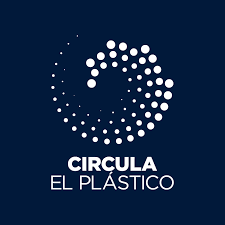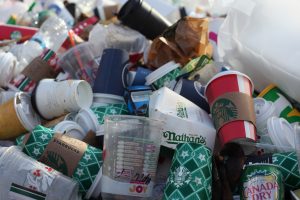To Have A Successful Circular Economy Consumers MUST Play a Role
I was recently invited by the Chilean Plastics Pact (Circula el Plástico) to give my vision for how a proposed bill in Chile would impact consumer education and the transition toward a circular economy.
The bill seeks to regulate mainly the delivery of disposable products in food outlets, promotes reusable containers, regulates the certification of other kinds of polymers (not petroleum based) and also regulates disposable plastic bottles and it’s reusable alternatives.
The different items in this bill align with the commitments that have been made together with more than 
In my view, there is one great challenge that is relevant to all these efforts to curtail plastic waste, which is the perception that the consumer does not play a role. It’s a problem that is rarely addressed publicly, but the consumer must be a key player in any transition to a circular paradigm. We know from experience that any initiative of this nature requires their active participation for it to be successful.
Linear Consumers
Most of us are linear consumers. We are the product of a system programmed for us to consume products that are intended for single-use and then throw them away. This is not a criticism of consumers, this is how we were programmed for more than 70 years. A society that works in a linear way is not limited to consumers, as it is also the way companies are currently producing products and in general it’s how business is done.
On a planet with finite resources, and without its own capacity to process plastics when they end up in the environment, continuing with a linear model does not make any sense. In the long run it will be very costly. Thus, we have to reprogram our way of thinking and look for the opportunities that this bill can bring us.
We need to become consumers that are aware of the impact of what we consume … transforming to Circular Consumers. We must ask ourselves where the resources to produce a product came from and where our waste ends up after it leaves our hands, our homes and our communities. We must also take an active role in a circular system that embraces all stakeholders, including government and corporations. Finally, we need to become consumers who rethink their convenience and who are open to generate changes for the good of the entire planet.
From Linear to Circular Consumers … Becoming Users of Resources, Not Trash

In order to participate in this new circular system, I believe that education must be integrated into all projects and initiatives that are being developed at this time. It should be in the very curriculum of our educational institutions. Educating about this new circular system cannot fall only on the Ministry of the Environment, and NGOs, but rather needs to be implemented by all stakeholders in our communities. It is time to generate collective change, and one that has circular consumers as part of the solution.
PLEASE CONSIDER DONATING TO SUPPORT OUR EFFORTS TO PROTECT OUR WORLD.

Trackback: researchers